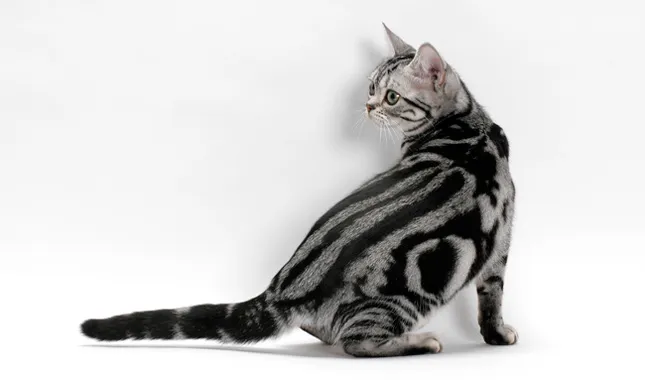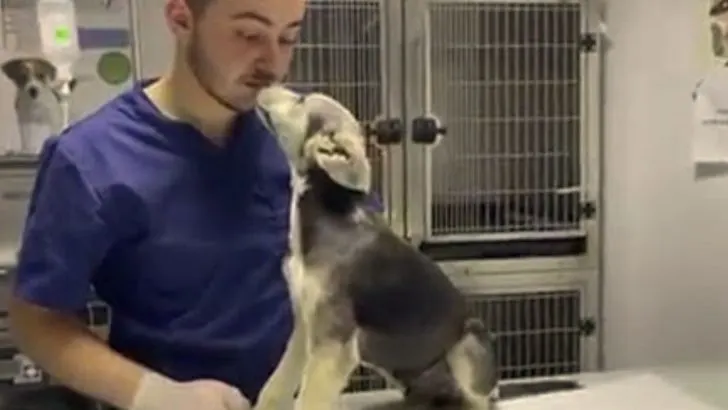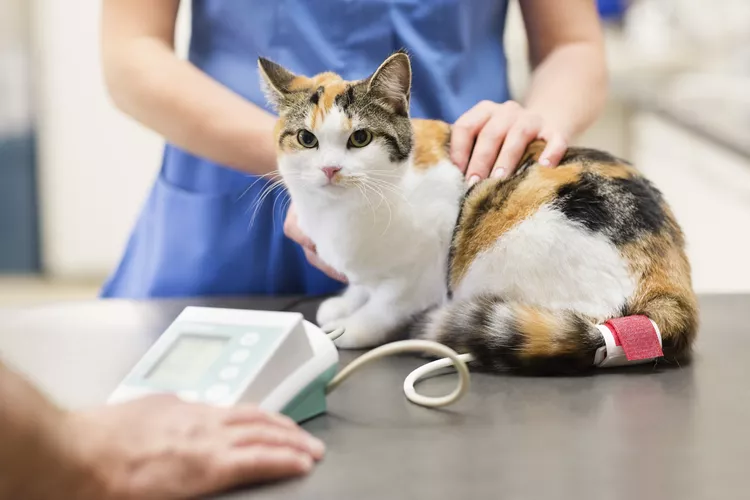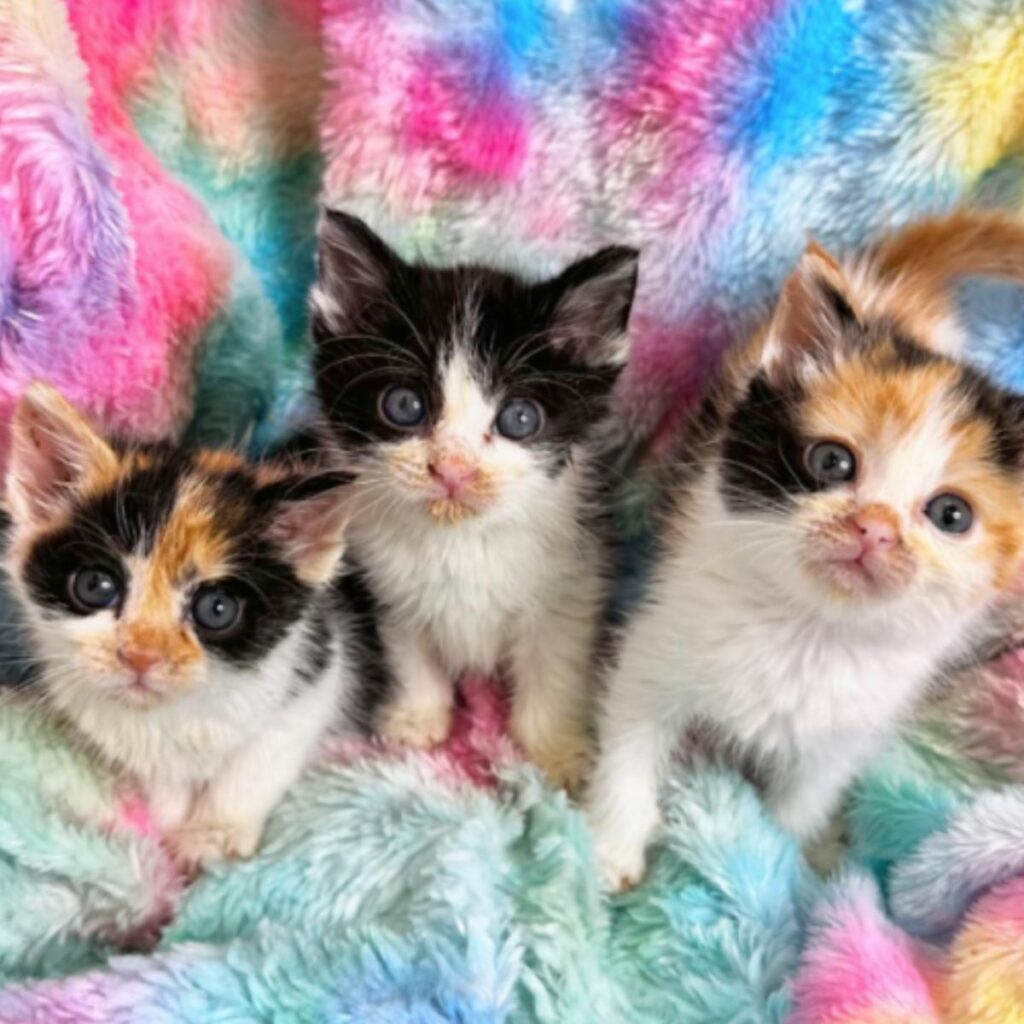Welcome to our guide on the American Shorthair. It’s a favorite cat breed for many because of their unique traits and joyful presence. Whether thinking of adopting one or already a proud owner, read on. You’ll learn important tips that promise to keep your cat healthy and happy.
The American Shorthair has been with American families since the country’s first settlers. These cats are calm, great companions, and quiet. Despite being quite independent, they love being around. They’re friendly, gentle, and fit well in any home.
American Shorthairs first came to North America on ships to work. They were the original cat breed meant to keep homes free from rats. These cats have a long history. The Cat Fanciers Association recognized them as special back in 1906.
In this article, we dive into keeping your American Shorthair healthy. We cover topics like watching their weight, caring for their teeth, and preventing illnesses. Plus, we’ll talk about spaying or neutering, traits they can inherit, and more. It’s all about giving your cat the best life.
The Health of Your American Shorthair
American Shorthairs, like all cats, can face some health issues. This breed is known for being hearty and healthy. But, staying alert to possible problems is vital. These may include genetic diseases, obesity, dental issues, infections you can prevent with vaccines, and parasites.
Some American Shorthairs could get genetic diseases. Knowing the signs and watching their health closely is key. Seeing the vet regularly catches any hidden problems early.
They also often deal with obesity. Their strong love for food can lead to weight issues. It’s crucial to help them stay at a healthy weight for a longer, healthier life.
Another issue is dental problems. You can fight these by brushing their teeth and giving dental treats. This prevents tartar and gum disease.
American Shorthairs need their shots to fight off certain infections. These include diseases like panleukopenia and rabies. Keeping their vaccines updated is a must.
Don’t forget about parasites. Fleas, ticks, and more can bother your cat. You can protect them by using preventatives regularly.
To keep your American Shorthair healthy, work with your vet. A health plan should include regular check-ups, the right food, play, dental care, vaccinations, and keeping pests away. This will help them enjoy a happy, long life.
Read more: Top Orange Cat Names for Your Fiery Feline
Weight Management for Your American Shorthair
Obesity is a big issue for cats, leading to problems like arthritis and diabetes. American Shorthairs are more likely to get overweight. It’s key to watch their food and make sure they move around enough.
Cats generally like to nibble on food all day. This is known as free-feeding. Yet, overeating and munching out of boredom must be avoided. To keep your American Shorthair in top shape, use interactive toys, have play sessions, and feed them a high-quality diet.
Dental Care for Your American Shorthair
Dental disease often affects cats, even the American Shorthairs. It’s crucial to take care of their teeth to avoid problems like tartar and gum disease.
Brushing your cat’s teeth is very important. Start slowly so they get used to it, but keep at it. Use a soft brush and toothpaste made for cats. Aim to brush their teeth two to three times a week.
Don’t forget about check-ups with the vet. Regular dental visits help catch any early issues.
Try using food puzzles and toys to improve your cat’s dental health. These items make your cat chew. Chewing can prevent plaque and tartar and keeps your cat from eating too much because of boredom.
Good dental care keeps your American Shorthair’s breath fresh and avoids serious infections. It’s important for their overall health.
Read more: Norwegian Forest Cat: Majestic Feline Guide
Vaccine-Preventable Infections for Your American Shorthair
American Shorthairs, just like all cats, can get sick from bacterial and viral infections. These include some that can be stopped with vaccines. Protecting your cat with these shots is key to its good health.
Vaccines against certain diseases are important for all cats, not just American Shorthairs. They fight off illnesses like panleukopenia, calicivirus, and rabies. These shots are a must for any cat.
There’s also a vaccine for feline leukemia virus (FeLV). This virus is very harmful and can spread easily. It weakens a cat’s immune system, making them more prone to sickness. If your American Shorthair goes outside or meets other cats, this vaccine is crucial.
Vaccination recommendations for your American Shorthair should be based on:
- The prevalence of vaccine-preventable infections in your specific area
- Your cat’s age and health status
- Your cat’s lifestyle and potential exposure to other cats
Talking to your vet is really important to figure out what vaccinations your American Shorthair needs. They will work with you to create a tailored vaccination plan. This plan will be based on where you live, your cat’s health, and how it lives.
Preventing sickness is better than trying to fix it. Making sure your American Shorthair gets the right vaccines will help keep it healthy and happy for a long time.
Parasite Prevention for Your American Shorthair
American Shorthairs, like any cat, can get various parasites. These can harm their health. It’s key to stop these parasites to keep your cat healthy.
Fleas and Ticks
Fleas and ticks are outer parasites your cat might pick up. They spread diseases and make your cat uncomfortable. Check your cat for these daily, especially if they go outside. Use flea and tick meds your vet suggests to keep these pests away.
Ear Mites
Ear mites are small parasites that can bother your cat’s ears. They cause itching and ear infections. Check your cat’s ears often. If you think they have ear mites, see your vet. They can offer meds to get rid of the mites and make your cat feel better.
Internal Parasites
Internal parasites, like worms, can harm your cat’s stomach and overall health. Getting regular fecal tests by your vet can find these worms. Then, your vet can give meds to keep your cat safe.
Preventive Medications
Preventive meds are important. Your vet will suggest what your cat needs based on their health. Always give these meds as your vet tells you for the best results.
Indoor Environment
Keeping your American Shorthair inside helps avoid parasites. Indoor cats are less likely to get fleas, ticks, and other pests. Also, keep your home and cat’s bedding clean. This helps a lot to keep parasites away.
Spaying or Neutering Your American Shorthair
Spaying or neutering your American Shorthair is a great idea for many reasons. One big benefit is stopping unwanted pregnancies. For female cats, spaying stops them from having kittens. It keeps you from dealing with baby kittens.
For male cats, neutering helps in different ways. It stops them from fathering kittens. It also cuts down on bad behaviors like marking spots inside, being overly aggressive, or wandering outside. These surgeries also lower the chances of some cancers.
Getting your cat fixed is also a good time to check for other health issues. The vet can look closely during the surgery because your cat is asleep. Pre-surgery tests spot any health problems early, avoiding trouble with anesthesia.
When to get this surgery done depends on your cat’s health and age. It’s best to talk with your vet about the perfect time. They’ll give advice based on your cat’s specific needs.
Read more: Understanding Cat Licks: Why Does My Cat Lick Me?
Genetic Predispositions in American Shorthairs
American Shorthairs are usually healthy. Yet, like all breeds, they might inherit certain disease risks. Knowing these helps give proper veterinary care and prevent problems.
Some common health issues in American Shorthairs are:
- Obesity: These cats can easily gain weight. It’s key to watch their food and exercise to stop health issues from obesity.
- Hypertrophic Cardiomyopathy: It’s a heart condition seen in American Shorthairs. Regular checks and symptom watching are crucial for their heart health.
- Tooth and Gum Problems: They could suffer more from dental problems. Regular dental care is a must to keep their teeth and gums healthy.
- Feline Lower Urinary Tract Disease (FLUTD): This urinary issue is more common in these cats. Watching for signs and getting prompt care are important.
- Diabetes: These cats have a higher diabetes risk. Regular vet checks and diet management can help prevent and control this disease.
- Respiratory Issues: Some might have allergies or asthma. Keeping the home clean and watching for breathing problems is essential.
- Eye Problems: Certain eye conditions are more likely. Regular eye checks and fast treatment can keep their vision healthy.
Being proactive with check-ups, watching for symptoms, and preventive care can curb these health issues in your American Shorthair. It helps them stay healthy and happy.
| Health Issue | Description | Preventive Measures |
|---|---|---|
| Obesity | American Shorthairs are prone to weight gain. Monitor food intake and provide regular exercise | Feed a balanced diet, limit treats, and engage in regular play sessions |
| Hypertrophic Cardiomyopathy | A form of heart disease that can occur in American Shorthairs | Regular veterinary check-ups and monitoring for symptoms |
| Tooth and Gum Problems | American Shorthairs may be prone to dental issues. Regular dental care and check-ups are essential | Brush their teeth regularly and provide dental treats or toys |
| Feline Lower Urinary Tract Disease (FLUTD) | A common urinary condition that may affect American Shorthairs more frequently | Provide plenty of fresh water, monitor litter box use, and promptly address any signs of urinary issues |
| Diabetes | American Shorthairs have a higher risk of developing diabetes | Monitor their diet, provide regular exercise, and schedule regular veterinary check-ups |
| Respiratory Issues | American Shorthairs may be prone to allergies and asthma | Keep their environment clean and free from potential allergens |
| Eye Problems | American Shorthairs may be more susceptible to certain eye conditions | Regular veterinary check-ups and prompt treatment for any eye issues |
Regular vet visits, preventive care, and symptom-checking can help manage health risks in American Shorthairs. This way they can lead long and healthy lives.
Physical Characteristics of American Shorthairs
American Shorthairs are medium to large-sized cats. They look strong and well-built. Their coats are short and thick, coming in many colors and patterns.
Most have a tabby pattern. They might be solid black, white, or gray. Or they could have calico or tortoiseshell looks.
The males are bigger than the females. Males can weigh up to 15 pounds, and females up to 12. Even though they’re muscular, these cats move with grace.
The eye colors of American Shorthairs are quite special. They can have blue, copper, green, and other colors. Some even have eyes of different colors. These unique eyes make them even more beautiful.
Care and Grooming for American Shorthairs
American Shorthairs are easy to care for. They need moderate grooming. Ensuring their well-being makes for a happy and healthy life.
Grooming
Grooming is key for American Shorthairs. Their short coat needs regular brushing. This prevents matting and keeps it nice. Brushing also cuts down on shedding and keeps their skin and coat healthy.
During spring and fall, they may shed more. Brushing is crucial then. It removes loose hair and stops it from gathering in your home.
Exercise and Socialization
These cats are social and like being with people. Play with them and give toys. This keeps them active and happy.
Socialization is vital from a young age. It makes them confident and friendly. Expose them to different people, pets, and experiences.
General Grooming Practices
Besides coat care, other grooming is important for their health.
- Dental Care: Brushing or treats keep their teeth healthy.
- Ear Cleanings: Clean ears prevent infections and wax buildup.
- Nail Trims: Regular nail trimming prevents discomfort. Use cat nail clippers.
These grooming steps promote the health of your American Shorthair. It’s not just about looks. It strengthens your bond with them.
| Grooming Needs | Care Frequency |
|---|---|
| Brushing | 2-3 times per week, daily during shedding seasons |
| Dental Care | Daily brushing or dental treats |
| Ear Cleanings | Once a month or as needed |
| Nail Trims | Every 2-4 weeks |
Stick to a regular grooming routine. It keeps your American Shorthair healthy and happy. They will be a joy for many years.
Read more: How To Keep Dogs And Cats Living Harmoniously? Read These 5 Methods Right Away!
Finding and Adopting an American Shorthair
If you’re eager to add an American Shorthair to your family, there are many paths to find one. These cats can be purebred or mixes. You can start your search by:
- Rescue Organizations: Look into rescue groups that focus on American Shorthairs. They work hard to match cats with loving homes. Check locally or online for these cats in need.
- Online Adoption Websites: Explore online platforms for pet adoptions. These sites are great for finding American Shorthairs from all over. They let you sift through choices with filters to link up with your perfect match.
- Cat Shows: Don’t forget about cat shows as they showcase many breeds, including the American Shorthair. You can meet breeders there and get a feel for the breed. They’re an insightful place to visit for information and to meet experts.
Consider both purebred and mixed American Shorthairs. Purebreds offer unique traits, while mixed-breeds have their own charm. What matters most is picking a cat that truly feels like a member of your family.
Always remember, adopting a cat is a big, long-term choice. An American Shorthair will brighten your days for many years. So, choose wisely and enjoy the journey with your new feline friend.
Conclusion
American Shorthairs are beloved. They bring joy to all in the family. These cats are great with kids and other animals. Taking care of them well is key to their health.
It’s important to visit the vet regularly. This helps catch any health problems early. Vaccines and medicines prevent common sicknesses and bugs from harming them.
Feeding them right is also essential. A diet that meets their needs keeps them happy and healthy. Loving and caring for your American Shorthair will make a strong bond that lasts a lifetime.







